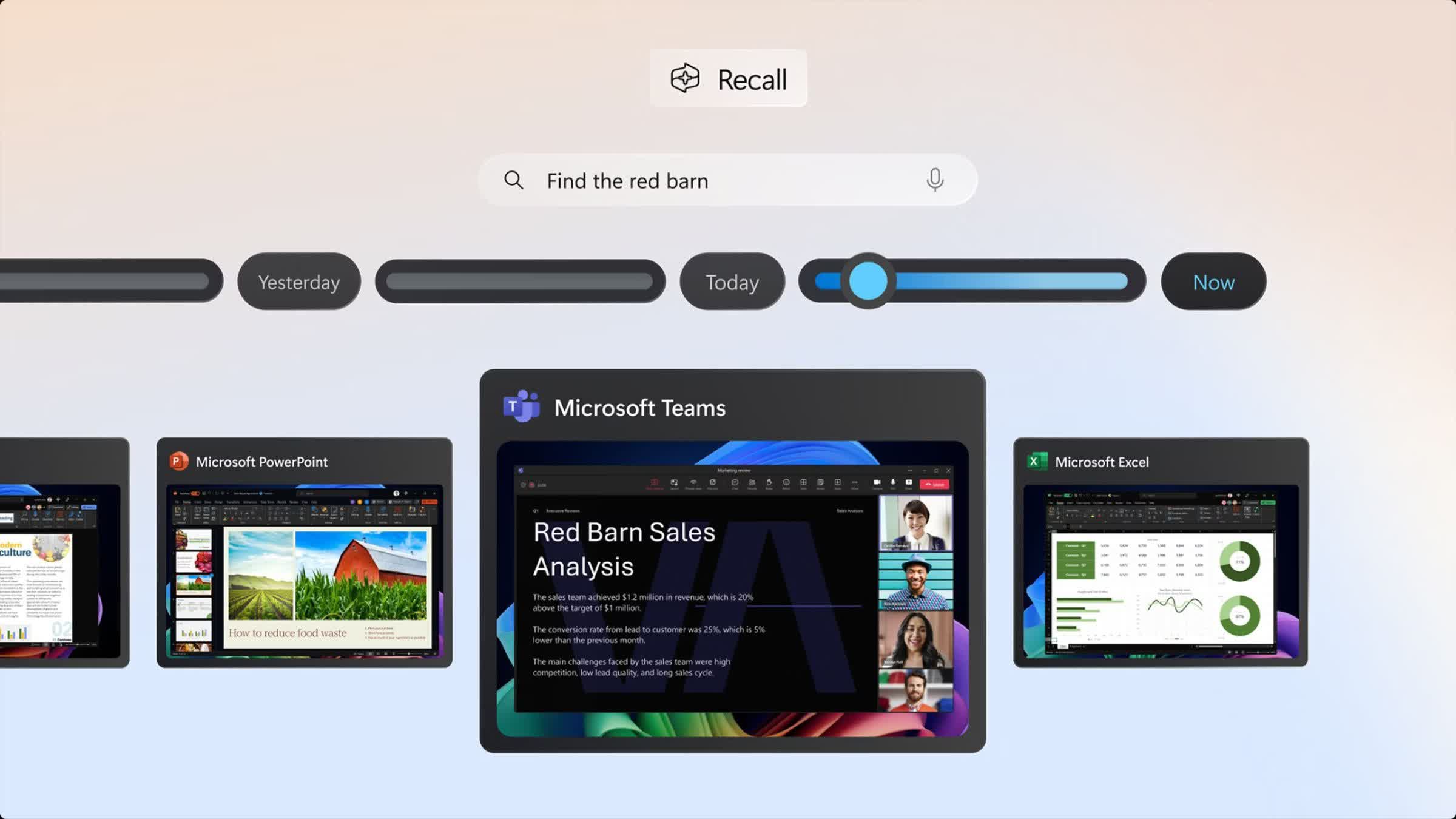TL;DR: Microsoft showcased the AI-powered "Recall" feature for Copilot+ PCs running Windows 11 at its recent Build conference. It is designed exclusively for devices powered by next-gen chips with an integrated Neural Processing Unit (NPU). However, one Windows enthusiast has managed to get it running on a laptop powered by an older Arm-based CPU.

The process of enabling Recall on unsupported PCs was detailed by well-known Windows tipster Albacore, who posted a short proof-of-concept video on X showing the feature running on a traditional Windows 11 PC without a built-in NPU. In his post, he claimed that he has only been able to enable the feature on Arm64 hardware but believes it should also work on devices powered by x86-64 processors from Intel and AMD.
One thing to note is that the video seems a little laggy, leading some commentators to question whether the slowness is due to the unsupported hardware. However, according to Albacore, the slow performance can be partially attributed to the screen recording app running in the background, and he noted that the feature generally works faster without it.
Making great progress enabling Recall on current Arm64 hardware, no fancy X Elite in sight! â¨
– Albacore âÂÂï¸Â (@thebookisclosed) May 23, 2024
Should theoretically work on Intel/AMD too, OEMs only received Arm64 specific ML model bundles so there's not much I can do yet.
Here's a small demo video showing off screenray ðª pic.twitter.com/w57fF1LxiN
The controversial new Recall feature is designed to record all activity on a user's computer and save snapshots for future reference. To ensure privacy, all screenshots will be processed and saved locally, not uploaded to Microsoft servers. Users will also be able to delete snapshots manually and set Recall to exclude certain apps and websites from its recording activity.
Even though Microsoft is positioning Recall as an innovative feature to help users quickly find elements from their past activity, many are convinced it will become a privacy nightmare. Since Recall was announced last week, Windows users and privacy advocates have made several noteworthy observations about its potential impact on user privacy.
Many point out that Recall will not hide sensitive information such as passwords and financial details when logging into websites or making banking transactions. Even more concerning is that the feature will be enabled by default on all supported PCs, although users can turn it off from the Privacy and Security options in Settings.
Windows 11's Recall feature can be enabled on PCs without an NPU